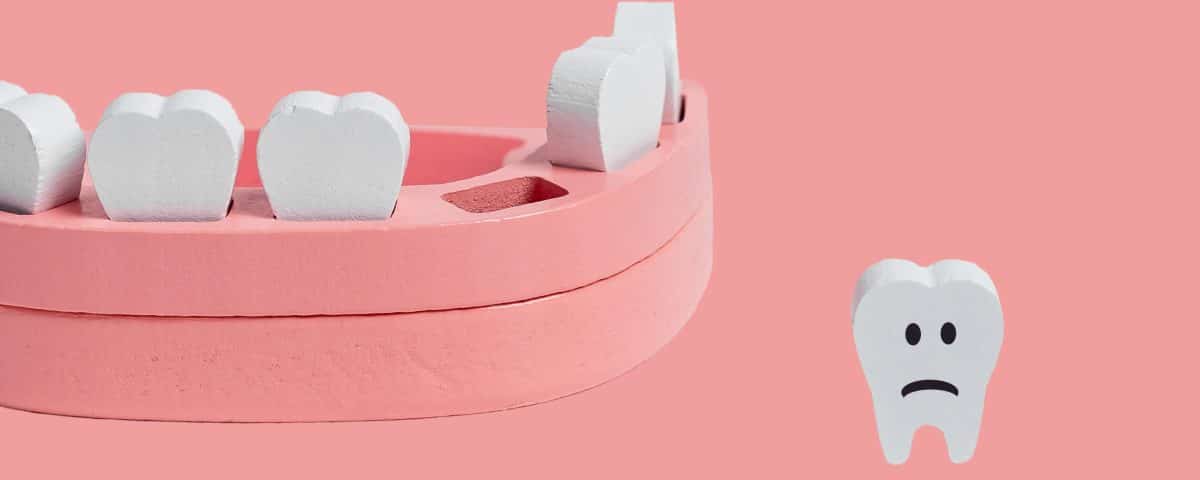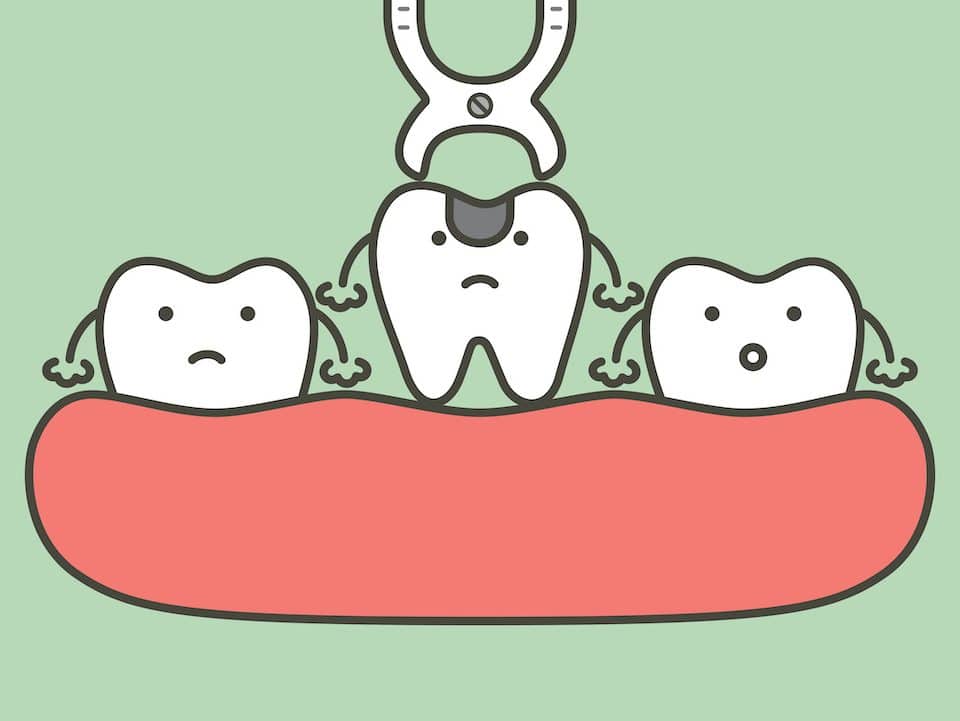When is it Necessary for an Adult to Have a Tooth Pulled?

All You Need to Know About Root Canals: Root Canal Awareness Week
May 11, 2023
Protecting Young Teeth: The Benefits of Fluoride and Dental Sealants
May 25, 2023While it’s no surprise that tooth extraction is generally the last resort for dentists when it comes to dealing with adult teeth, there are certain occasions where it simply can’t be avoided. If you’ve ever wondered what situations might call for an adult to have a tooth pulled, then you’ve come to the right place! Keep reading to learn more about when dentists will pull an adult tooth and what consequences this might have on your overall dental health.
Adult Tooth Loss
If left untreated, cavities and periodontal (gum) disease lead to tooth loss. Severe tooth loss—having 8 or fewer teeth—impacts the ability to eat meats, fruits, and vegetables, and presents yet another challenge to having a healthy diet. Certain chronic conditions are associated with severe tooth loss, which can diminish quality of life and interfere with eating healthy foods.
- Complete tooth loss (edentulism) among adults aged 20-64 years has declined over time, but disparities exist among some population groups.
- The percentage of adults who have lost all their teeth remains higher (6%) among people who are low-income and current smokers, compared to about 1% among those who are higher-income or who have never smoked.
When is it Necessary for An Adult to Have a Tooth Pulled?
1. Severe Tooth Damage:
When a tooth has suffered irreparable damage due to decay, trauma, or infection, extraction may be the only way to relieve pain and stop further progression of the issue.
2. Crowded Teeth:
If there isn’t enough room in your mouth for all of your teeth due to overcrowding, then a tooth extraction may be necessary to make room for other teeth.
3. Impacted Teeth:
If an adult’s wisdom teeth are impacted (erupting incorrectly or not at all) and causing pain, crowding, or infection, they may need to be removed in order to protect the surrounding teeth and gums.
4. Gum Disease:
Severe cases of gum disease may require a tooth extraction if the infection is too deep or can’t be treated with antibiotics.
5. Orthodontic Treatment:
If you are undergoing orthodontic treatment, such as braces, your dentist may recommend tooth extraction to make room for other teeth or to make the alignment process easier.
Although tooth extraction is often a last resort, it can be an important part of managing your oral health.
What to Expect as an Adult if You Need a Tooth Pulled
If you need to have a tooth pulled, your dentist will explain the procedure and go over any potential risks. Here’s what adults should generally expect when having a tooth pulled:
- Local Anesthetic: Your dentist will usually administer local anesthetic to numb the area before extracting the tooth.
- Tooth Removal: The dentist will then use forceps to gently extract the tooth.
- Sutures: Depending on the complexity of the extraction, your dentist may need to close up the wound with sutures or a special dressing.
- Follow-up Visits: Your dentist may recommend follow-up visits to ensure that everything is healing properly and that any risk of infection has been minimized.
Ultimately, having a tooth pulled as an adult is not the preferred option for managing poor dental health, but it can be necessary in some cases. If you have any questions about when or if tooth extraction is necessary for your particular situation, don’t hesitate to speak with your dentist for more information and advice.
Preventing Adult Tooth Loss
Like many other oral conditions, tooth loss can be avoided with proper dental care such as:
- Brushing your teeth for 2 minutes 2 times a day
- Cleaning between your teeth once a day
- Visiting your dentist regularly
- Wearing a night guard while you sleep (if you have bruxism)
- Using a mouth guard while you play sports
Tooth loss can be hard to prevent in some cases. For example, if you have a chronic disease, such as diabetes or a cardiovascular disease, you may lose more teeth as you age than people without those diseases. Also, certain medications cause chronic dry mouth. Without enough saliva, your mouth can have a harder time breaking down food, fighting tooth decay and preventing gum disease.
Make an Appointment with Stonebrook Family Dental
If you’re concerned that you may need a tooth pulled, or if it’s just for your regular check up, make an appointment with Stonebrook Family Dental. Our experienced staff is here to help you maintain your oral health and keep your smile healthy and beautiful. Contact us today to get started!



